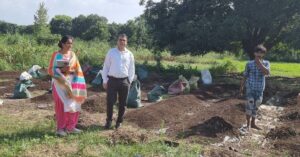‘Father of Agritourism’ Helps Over 600 Farmers Earn Rs 58 Crore; Here’s How
Agritourism is a concept made popular in India by Pandurang Taware. The farmers associated with his venture say it has given a boost to their regular income.
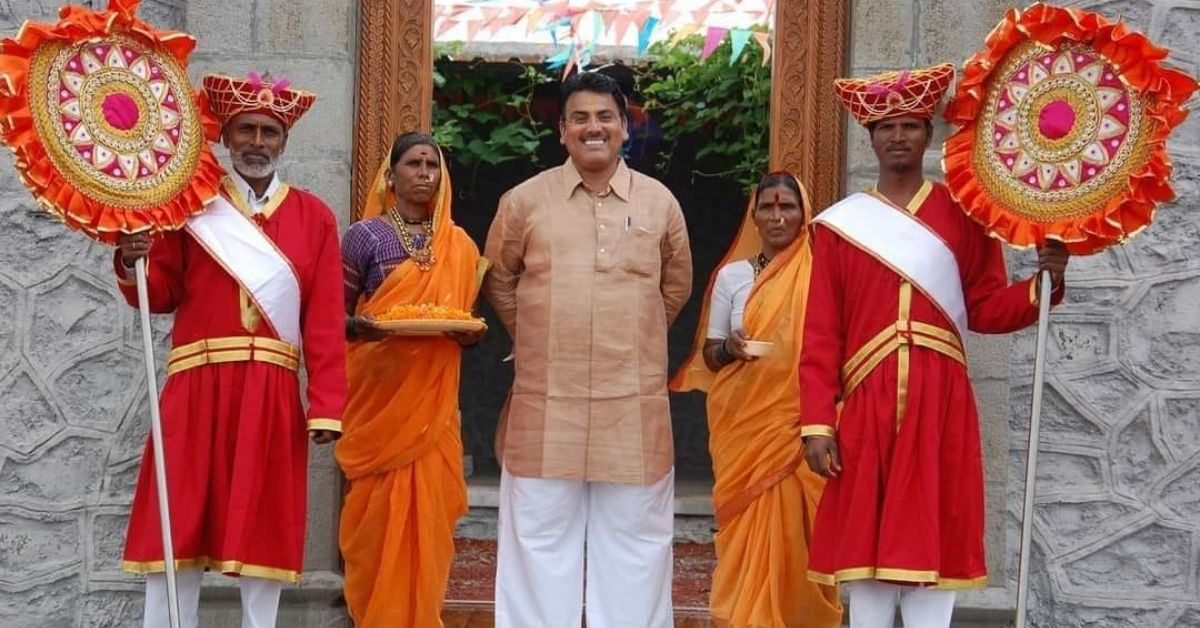
“India is not Calcutta and Bombay; India lives in her seven hundred thousand villages.”
While this was a statement made by M K Gandhi almost half a century ago, it holds even today with India’s official farmer population pegged between 100 million to 150 million.
Given how dependent farmers are on the vagaries of monsoon, government policies and various other external factors, it has become extremely important for them to find ways of supplementing their income. Pandurang Taware (52), a son of a farmer from Shangavi in Baramati district, Maharashtra, with the introduction of agritourism claims to have helped over 628 farmers earn Rs 58 crore in the last financial year (pre-COVID).
Pandurang is a firm believer in farmers finding ways of diversifying their work and increasing their income.
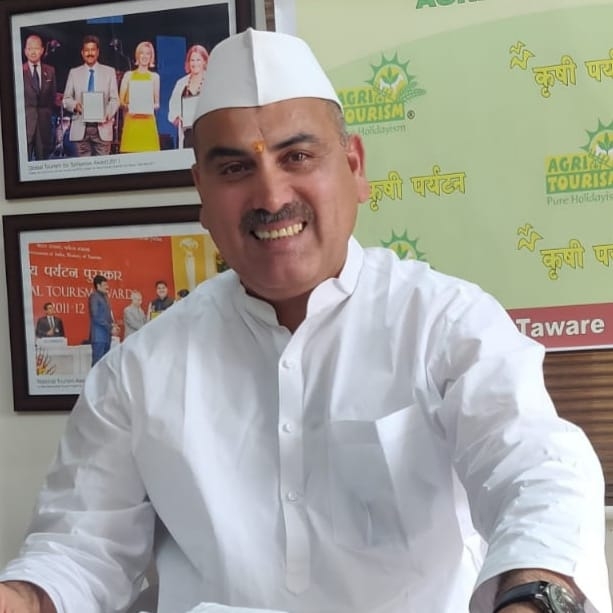
Speaking to The Better India, he says, “I grew up in a joint family, where everyone was involved in farming. I went on to study computer science and worked in the tourism industry for close to 20 years before coming back to my village.”
“In a sense coming back to farming was a way of fulfilling my father’s dream. He had wanted me to pursue a degree in agriculture but back then my score was not good enough for it. Having enjoyed my stint in the tourism sector I wanted to find a way of merging both,” says Pandurang.
He is also known as the ‘Father of Agritourism Concept in India.’
For Pandurang, returning to farming seemed like a natural step. However, he mentions how the decision and the move were not easy for his wife.
Incorporating Lessons From the West in India
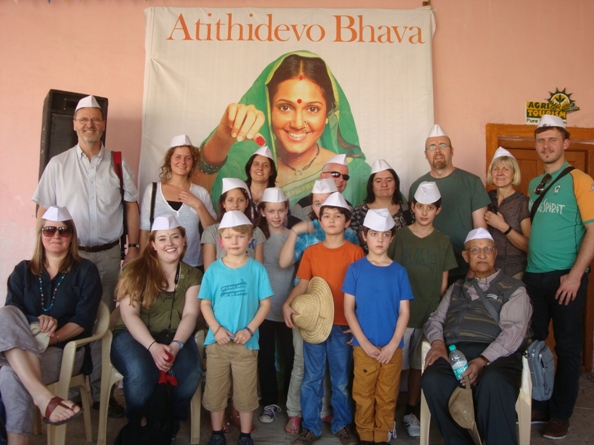
“For my wife, Vaishali Taware, who had grown up in the city, coming to the village and starting from scratch was not an easy move. While there was reluctance in the beginning, over the last 19 years she has become my biggest supporter and cheerleader,” he says.
Pandurang also speaks about how when he got married to Vaishali, he was drawing a salary of Rs 470 and says that life was difficult financially. “Coming back to the village also meant coming back to our own house,” he says.
“I was 32 years old when I decided to move from a well-paying job to agritourism,” he adds. Agritourism, as a concept, has been prevalent in Europe for a long time and has many takers as well. Pandurang says that he saw potential in establishing a similar concept in India as well and in 2002 he moved to his village to find ways of starting agritourism.
Before formally launching the agritourism concept in Maharashtra, Pandurang says that he spent 2003 in a market sample survey and that data helped in structuring the entire concept. This market sample was done with a sample size of 2,440 participants, he adds. Armed with this data, in 2005, Agri Tourism Development Corporation (ATDC) was launched from Maharashtra.
“When I started, it was all very new for both the farmers and those who signed up to come and experience this life.”
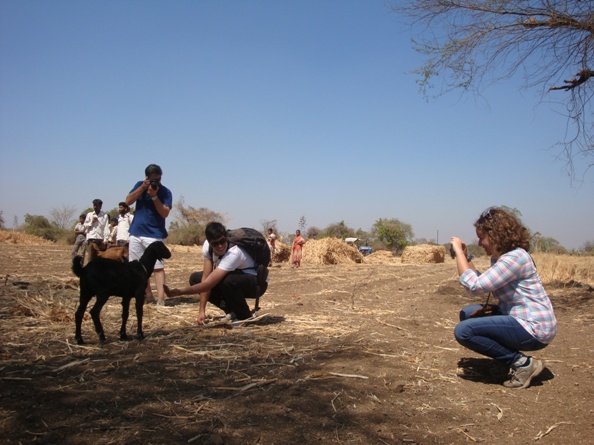
“Along the way we learnt about what would work and how best we could curate an experience for those who visited the farm,” says Pandurang. The idea behind the venture was not just to host urban dwellers but to make sure that they experienced the life of a farmer. Along with this Pandurang says that the fresh produce from the farm is also available for purchase and this also boosts the income of the farmers.
Empowering Over 600 Farmers
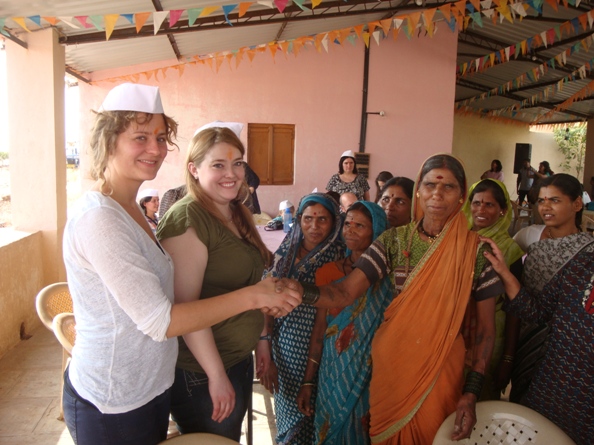
Speaking about his own family experience with farming, Pandurang says, “My grandfather Baburao Tawade owned 13 acres of land. He had six children, four sons and two daughters. While the farming activities gave them money twice a year the expenses in maintaining the land and tending to it came in all year round. The mounting expenses and the dwindling income from it was one reason why other than my father, none of my uncles ventured into farming.”
Pandurang also adds here that the initial confidence of seeing this concept work made him invest close to Rs 6 lakh into the venture. These were his savings from his tourism job and unfortunately, the first year after the launch did not see much traction with tourists. “I put in a lot of the money into advertisements and despite spending a large chunk of money on it, for the first fortnight, we got zero calls. After a few gruelling months of wait time, in October 2005 we got our first customer.”
Pandurang recalls the first pilot tour that he conducted and speaks fondly of how he took down the booking details, took the group around the farm for the visit, explained to them how things worked and served them food. It was an experience I will never forget and one that launched our venture, so to say.” The next three months, October to December continued to be a lull for the venture.
But shortly after that, he says, “It was a 4,000 member women’s group based out of Pune that visited the farm in January 2006 and since then there has been no looking back.”
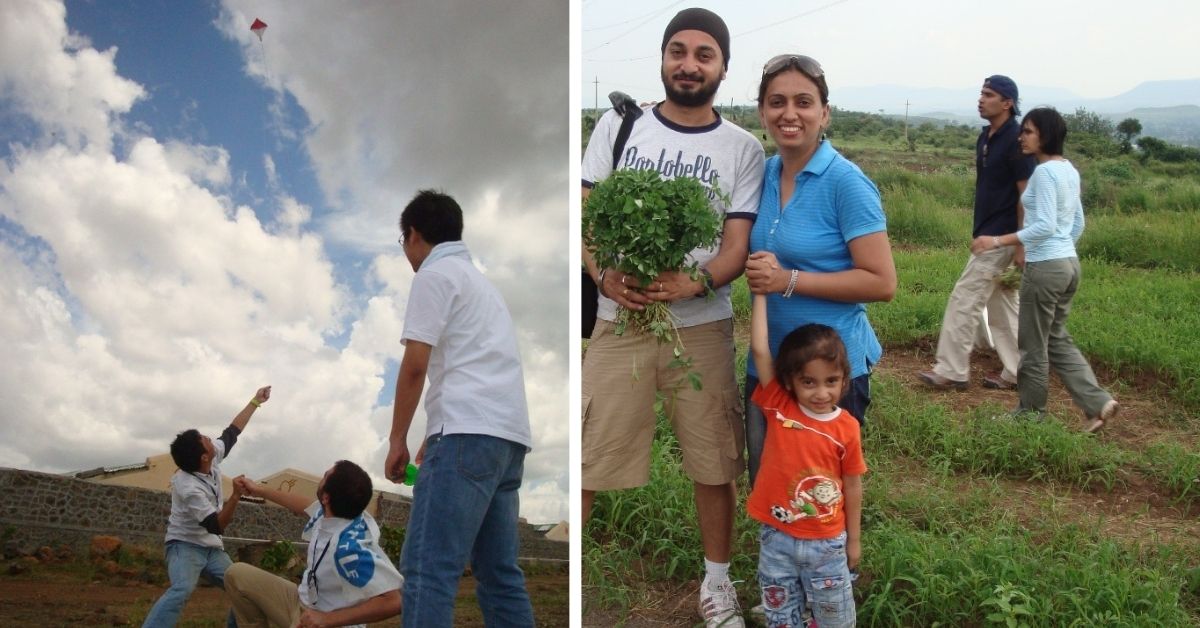
In the next 18 months, the venture hosted close to 13,000 tourists at the farm.
Krishna Padtare, a farmer from Nasrapur in the Bhor taluka associated with the venture and Pandurang for over six years now says, “With the kind of inflation we are experiencing, expecting to run our households on the income just out of our agricultural produce alone is not enough. In collaborating with ATDC we have experienced almost 5x increase in our income.” Before joining ATDC, Krishna says that he tried his hands at various business ideas – from poultry farming to dairy farming but unfortunately none of them yielded good results.
“Without sounding like an advertisement, I must say that agritourism gave me and my family a great boost to our income,” he adds. “I also learn from the tourists who come and visit the farm. There is so much to learn from every tourist,” says Krishna.
Pandurang adds, “The concept is simple — stay like a farmer, engage in farming activities, experience the bullock cart, tractor ride, fly kites, eat authentic food, wear traditional clothes, understand the local culture, enjoy the folk songs and dance, buy fresh farm produce and in turn help the farmer maintain him home and earn an additional income.”
To experience this life for one day will cost you Rs 1,000 per person, which includes two major meals; breakfast, lunch and evening tea with snacks. For those who wish to spend the night on the farm, the cost increases to Rs 1,500, which will include all meals.
For his work on promoting agritourism, Pandurang has also won several national and international accolades.
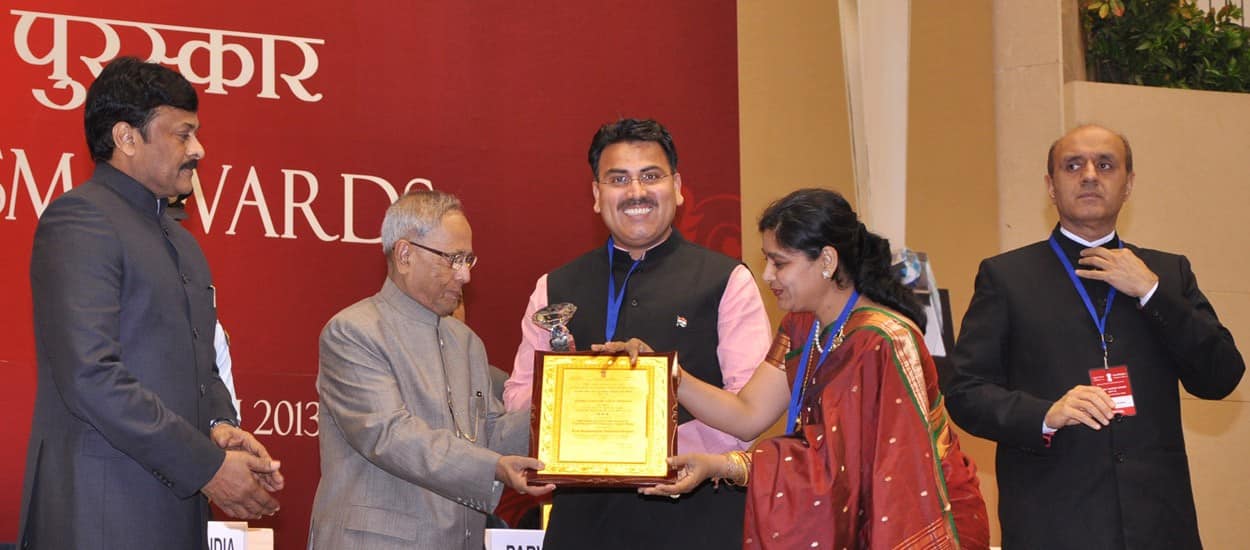
These include two national awards in 2008-2009 for introducing the most innovative tourism product in the country and for promoting responsible tourism in 2013-2014.
Pandurang was also instrumental in drafting the policy on agritourism in Maharashtra and this policy mandates schools to ensure that students from Class 5 to Class 10 spend time visiting a farm for one compulsory educational trip every year. “That is a total of almost 1 crore school students from various aided and unaided schools in Maharashtra. Catching them young will help make a far stronger impact,” he says.
‘Sevarth madhe parmarth’ — meaning do something that will benefit not just you but those around you — with this philosophy in mind, Pandurang has managed to make life immensely comfortable and successful for himself and more than 600 other farmers in Maharashtra. “We managed to make over Rs 50 crores pre-COVID via sales of farm produce and the tours we conduct. This amount helped over 600 farmers who are associated with us,” says Pandurang.
He is now working on taking the agritourism concept to various other parts of the country.
(Edited by Yoshita Rao)
If you found our stories insightful, informative, or even just enjoyable, we invite you to consider making a voluntary payment to support the work we do at The Better India. Your contribution helps us continue producing quality content that educates, inspires, and drives positive change.
Choose one of the payment options below for your contribution-
By paying for the stories you value, you directly contribute to sustaining our efforts focused on making a difference in the world. Together, let's ensure that impactful stories continue to be told and shared, enriching lives and communities alike.
Thank you for your support. Here are some frequently asked questions you might find helpful to know why you are contributing?


This story made me
-
97
-
121
-
89
-
167




